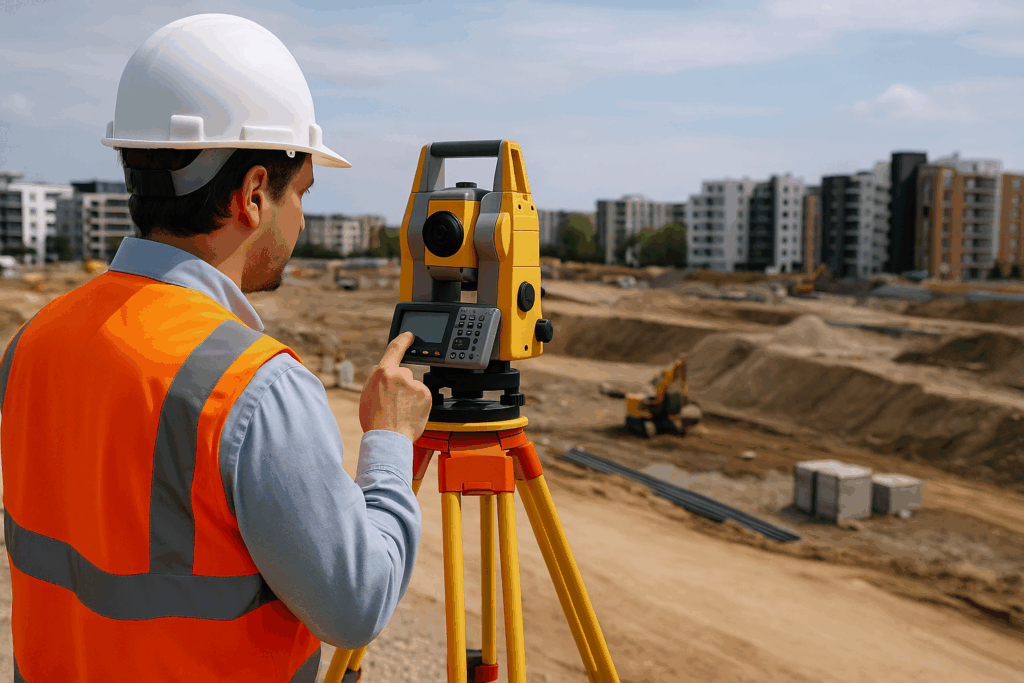Successful land surveying is not just about mapping land—it’s about selecting the right survey for the right stage of a project. Conducting the wrong type of survey can lead to unnecessary costs, incomplete data, and unforeseen project delays. To avoid these risks, it is crucial to understand when each type of survey is needed and how it contributes to the overall success of a project.
Why Survey Timing and Selection Matter
Land surveying plays a vital role in project planning, design, and execution. However, it is often treated as a routine step in a request for proposal (RFP) or scope of work rather than a strategic decision. Conducting a survey too early may mean collecting data that becomes outdated, while delaying a critical survey can expose land restrictions that could derail the project.
Modern technologies—such as GPS, drones, and lidar surveying—have revolutionized the industry, making surveys faster but not necessarily better. Technology alone cannot replace the expertise required to select the right type of survey. Experienced surveyors provide critical insights into significant land characteristics, essential infrastructure details, and important legal considerations that technology alone may overlook.
To determine the right survey for a project, consider these key questions:
- What is the full scope of my project?
- Will the project impact only a portion of the site, or does it require a full survey?
- Will new buildings be constructed in phases, and if so, how many?
- What special information will the project designers need?
- How much information is needed about adjacent properties and public right-of-ways?
- What existing survey data may already be available?
- What coordinate and elevation datum does the survey need to by on?
- What scale and orientation should the survey be drawn at?
Selecting the Correct Survey for Each Project Phase
Different types of surveys serve different purposes. Choosing the wrong one—or overlooking a necessary one—can lead to project delays, unexpected costs, and legal complications. Here’s how to make the right choice:
- Aerial Surveys – Best for Early Planning
Aerial surveys, often conducted using airplanes, provide a quick, cost-effective overview of a site. They are particularly useful for large or complex sites, offering critical insights into terrain and adjacent properties. However, they have limitations in areas with heavy tree cover, roof obstructions, or locations requiring highly detailed ground-level data. - Topographic Surveys – Essential for Design and Construction
As a project moves into the design phase, a detailed topographic survey becomes necessary. This survey captures elevation changes, terrain features, and site conditions essential for architectural design, grading plans, ADA compliance, utility design, and accurate construction layouts. Conducting a topographic survey too early can result in unnecessary costs, but waiting too long can delay design decisions. - Boundary Surveys – Critical for Legal and Compliance Issues
A boundary survey is essential for projects involving land acquisition, land subdivision, property line verification, or easement documentation. It ensures that legal boundaries are clearly defined and helps identify any encroachments or restrictions that could impact development. Title reports should be reviewed alongside boundary surveys to identify legal encumbrances and prevent disputes and compliance issues.
Expertise That Drives Smart Decision-Making
At Underwood & Rosenblum, we specialize in providing tailored surveying solutions to meet the unique needs of each project. Our team of experienced civil engineers and land surveyors understands the critical role that surveys play in project planning and execution.
Frank Rosenblum, the firm’s principal, holds both a Professional Civil Engineering license and a Professional Land Surveying license. His expertise ensures that clients receive precise, timely, and cost-effective surveying solutions—leading to informed decisions, reduced risks, and successful project outcomes.
By selecting the right type of survey at the right time, project owners can avoid unnecessary costs, minimize legal risks, and ensure smooth project execution from start to finish.




